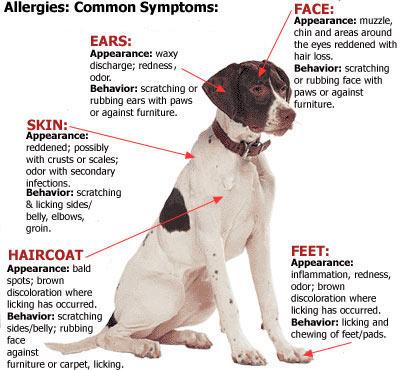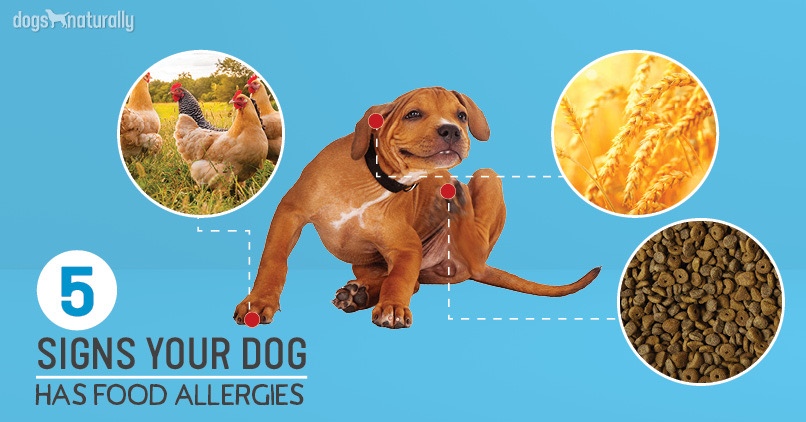
How To Know If Your Dog Is Allergic To His Food. Hives also known as urticaria may pop up 6 to 24 hours after your dog eats the food they are allergic to. Since allergies come in many forms your dogs reaction might not be easy to define. Common allergy causes include pollen flea saliva vaccines spider bites bee stings or even certain foods. Other more subtle changes can also occur including hyperactivity weight loss lack of energy and even aggression.

Check under your dogs fur for rashes or hives if you notice your dog having dry itchy skin. Even if your vet finds a reason for your dogs skin problems they may still suspect that an adverse food reaction is at least partially responsible since for example yeast infections can develop as a result of food allergies. If there is no other apparent cause for your dogs symptoms your veterinarian may begin to suspect that food allergies are behind your dogs itchy skin or ear infections. It may progress to difficulty breathing. In the dog the signs of food allergy are usually itchy skin or digestive disturbances such as vomiting or diarrhea. 2 Recognize the clinical signs of.
While other conditions can cause these side effects if you notice them occur specifically after your dog eats their food or a certain ingredient an allergy is likely the culprit.
Some dogs are allergic to flea saliva. If your dog has short hair these itchy red bumps are easier to. It can become so uncomfortable that your dog will scratch herself silly. In the dog the signs of food allergy are usually itchy skin or digestive disturbances such as vomiting or diarrhea. Allergies are rather common in dogs of all breeds and backgrounds and occur when their immune system has a hyper reaction to a foreign substance Klein explains. Other more subtle changes can also occur including hyperactivity weight loss lack of energy and even aggression.